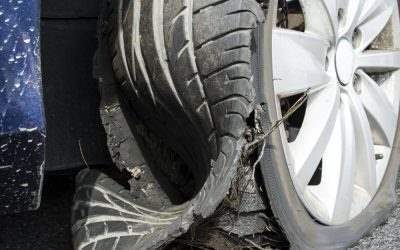Did you have a Stryker hip implant? Do you experience pain caused by your hip replacement? Have you had to undergo a painful revision surgery?
You may qualify to file a lawsuit and recover compensation to cover your financial, physical, and emotional damages. If you are suffering complications and damages due to a Stryker hip implant – including due to Trident hip implants, Rejuvenate or ABG II hip stems, or LFIT V40 femoral heads – contact a Stryker hip replacement lawsuit lawyer at D. Miller & Associates, PLLC today to see if you have a claim for compensation. Call 713-850-8600.
Do I Qualify to File a Lawsuit for My Defective Stryker Hip Implant?
Stryker Orthopedics hip replacement components were supposed to help you improve your quality of life. Instead, we now know that Stryker’s failing components are doing the exact opposite.
- Squeaking in the hip
- Grinding in the hip
- Popping in the hip
- Severe pain or swelling
- Difficulty walking
- Loose or dislocated implant
- Metal in the blood (metallosis)
- Need for revision surgery
If you have experienced any of these complications from your hip implant, you may be entitled to compensation for your injuries. The types of compensation you may be eligible to receive include:
- Medical expenses (doctor’s visits, pain medication, revision surgery, new hip replacement).
- Other compensatory damages (home health care and other caregiver costs, lost income).
- Pain and suffering (physical suffering, mental and emotional suffering).
- Loss of consortium (damage to relationship with spouse).
- Punitive damages (awards to discourage similar negligence).
Latest News on Stryker Hip Implant Lawsuits
Many of the initial test cases or “bellwether” cases have successfully settled. As a result, a second phase is now planned in part due to the positive outcome experienced in the bellwether cases and the settlements reached late in 2013 of 8,000 DePuy metal hip cases.
It’s possible however, that Stryker may not settle cases of those patients that have not had a revision surgery. If you have, or think you may have a hip implant claim, do NOT feel that you must have a revision surgery based on our information. We are not medical experts and cannot begin to advise you on how to be treated. We do however, remind you of the importance of maintaining regular follow-ups with your orthopedist to be evaluated properly, especially if you have not been seen for more than 6 months. Your orthopedist is likely to order tests including a MARS, MRI, and blood work to detect any levels of cobalt or chromium ion levels.
Stryker Corporation has issued a temporary recall of its Trident PSL and Trident Hemispherical Acetabular Cups used in hip replacement surgery. Stryker hip implants are manufactured by Stryker Howmedica Corporation, a leading manufacturer of hip implants located in Michigan. The lawyers at D. Miller & Associates are currently reviewing cases involving faulty Stryker hip implants.
If you have noticed that your hip implant is not working properly, or squeaks when you walk, you may be entitled to file a claim against Stryker Corp. Stryker has received numerous complaints concerning its Trident Hemispherical and Trident PSL cups, which have failed to function, and hip implant components that have poor fixation.
A History of Stryker Hip Implant Problems & Recalls
How Do Hip Implants Work?
Stryker hip implants are used to replace part or all of a patient’s damaged hip. These hip implants can be highly beneficial for patients who suffer from severe hip pain and significant loss of mobility. The surgery and recovery are substantial, involving incisions, healing and ultimately physiotherapy to regain strength and normal functioning.
Implants typically follow the same “ball and socket” model: a socket is implanted into the pelvis, which fits snugly next to a head (the ball). That head attaches to a spike that is cemented or drilled into the femur. Traditionally, these implants have been manufactured from metal and/or plastic. It was believed that the ceramic models could not cause the same problems because it was not a metal-on-metal product. However, contradictory evidence has since emerged, showing that ceramic implants are experiencing numerous complications.
Stryker Recalls Trident Hip Implants
In November 2007, the U.S. Food and Drug Administration (FDA) issued a letter to Stryker warning that, according to the FDA’s own investigation of consumer complaints, the company had serious problems with the quality of its products and had not implemented adequate corrective solutions to fix these problems. The FDA went on to warn Stryker that if it did not take prompt action to correct these problems, the FDA would take further action, including seizure, injunction, and/or other civil penalties. On January 22, 2008, Stryker issued a recall of the following products:
- Trident Acetabular PSL Cup
- Trident Hemispherical Cup
In addition to the problems associated with the hip implants themselves, during an FDA investigation held during the summer of 2007, FDA inspectors found the manufacturing site deficient with regard to some of its quality control procedures. Disease-causing germs were found at the facility, including clumps and clusters of a form of Staphylococcus bacteria.
Stryker Recalls Rejuvenate and ABG II Hip Stems
Fast forward to 2014 and Stryker issued a recall for its’ defective stems – the Rejuvenate and ABGII. Stryker ended up settling for $1.4 billion dollars due to damages caused by its defective hip replacement components.
Unlike one-piece, fixed femoral components, these models have two-part, mix-and-match necks and stems, both of which are made of metal. Metal-on-metal pieces can corrode and deteriorate which adds the concern of metal leaching into the surrounding tissue and bloodstream. This leads to metallosis, which can cause serious complications such as tissue death, pseudotumors, and bone loss.
Stryker Recalls Cobalt/Chromium LFIT V40 Femoral Heads
And once again, on August 29th, 2016, Stryker found itself having to issue another recall for their femoral heads – the cobalt/chromium LFIT V40.
The LFIT V40 was used as a part of the Accolade and Accolade 2 hip systems. The LFIT femoral head is also used with Stryker’s Meridian and Citation stems – although these stems have not been recalled. Metallosis, corrosion, stem fracture, and liner fractures have all been associated with the recalled device.
Currently, it is unknown if the recall is caused by a manufacturing problem or a design defect. What is known, is that the failure of the LFIT V40 implants can have serious side effects. These include the “disassociation of the femoral head from the hip stem” which cause:
- Implant fractures
- Excessive metallic debris in the body
- Insufficient range of movement
- Insufficient tissue tension
- Pain
- Adverse local tissue reaction
- Discrepancy in leg length
- Broken bones surrounding the components
- Impairment and sometimes loss of mobility
- Instability of the joint
All of which require extensive and painful hip revision surgery to correct.
Contact D. Miller & Associates for Help Filing a Stryker Hip Implant Lawsuit
If you had a Stryker implant, or if you are not aware of the brand or model, contact D. Miller & Associates for a free evaluation of your case. We are now accepting Stryker hip implant cases in all 50 states.
Patients like yourself are taking action and hiring attorneys to help recover their lost damages. If you’ve had to endure the pain of a revision surgery, or struggled with daily pain, you can count on us for help. We are here to help guide you through the complicated litigation process and hold Stryker accountable. If you have had a hip surgery and are experiencing pain, contact us today.
Please call our direct line at 713-850-8600 or use the form or chat feature on the website.
Related Frequently Asked Questions
- How Do Personal Injury Lawyers Get Paid In Texas?
- How Can D. Miller & Associates, PLLC Help Me With My UCLA Sexual Abuse Lawsuit?
- I Was Injured in an Accident with an 18-Wheeler. Can I Sue?
- Should I Take An Ambulance After A Car Accident In Houston?
- My Loved One Was Killed In A Truck Accident, Am I Able To Sue?





